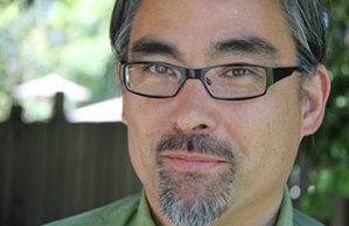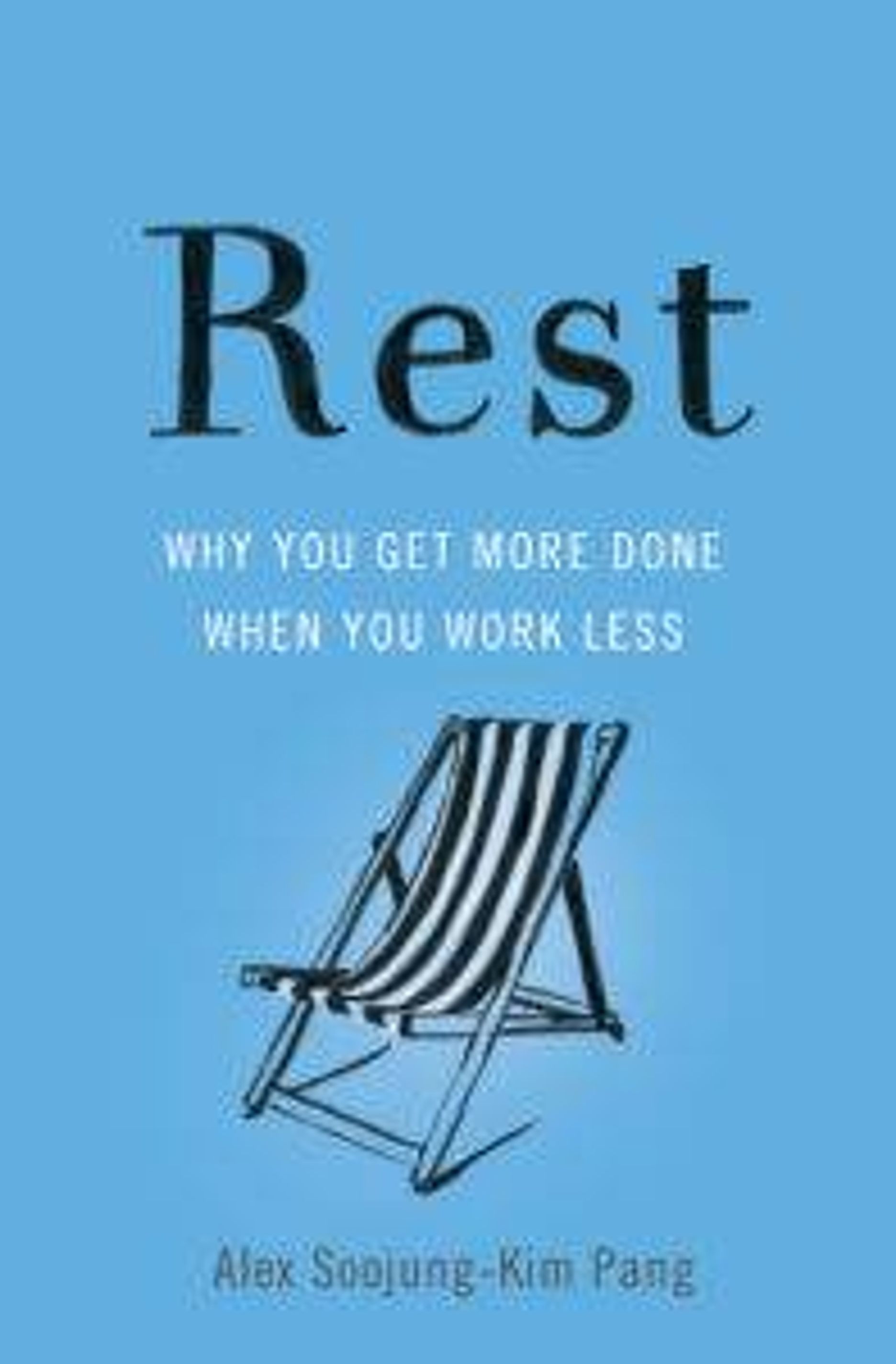How to Work Less and Get More Done
Surprising, counterintuitive advice from the author of 'Rest'
Maybe you’ve seen these recent headlines:
- CEO Resigns After Overworked Employee Commits Suicide
- France Just Gave Workers the ‘Right to Disconnect’ From Work Email
- 52 Percent of Working Americans Are Giving Up Vacation Time
Notice the pattern? Many of us are working like maniacs. Alex Soojung-Kim Pang, author of the fascinating book, Rest, thinks it’s time to cut it out. More importantly, he says it’ll make us better workers.
Pang, 52, has not only spent many hours researching the importance of rest, he founded The Restful Company, a consulting firm to help Silicon Valley firms offer their employees a better blend of work and rest. (He’s also a visiting scholar at Stanford.) After reading Pang’s book, whose fetching subtitle is ‘Why You Get More Done When You Work Less,’ I called him and asked if he’d share some of what he has learned. Highlights of the interview:
Next Avenue: What made you get interested in the subject of rest?

Alex Soojung-Kim Pang: Around 2008, I exhibited the classic signs of burnout. I stepped back and got an opportunity to do a sabbatical at Microsoft Research in Cambridge, England. In those three months, I got an immense amount of stuff done and I had lots of time to go out for walks with my wife. I didn’t feel the stress I normally did. I began to wonder if maybe the assumption that to do more you have to work more hours is actually backward. So I started looking at the scientific literature.
I looked at the lives of scientists and writers to get a sense of their daily schedules and found people who were incredibly prolific and productive but only worked four or five hours a day. I wondered if maybe it wasn’t about the way they worked but how they rested during the other 20 hours of the day.
I found very consistent patterns in the way these people rested: They took long walks and naps and they structured their days carefully. The body of research in neuroscience helped explain why every one of these practices could help people be more creative. The things I was seeing in the lives of Nobel Prize and Pulitzer Prize winners were things that were accessible to everybody.
At that point, I realized maybe we need to not think of rest as entirely passive or a negative space defined by the absence of work but rather as a positive, and a practice we can all cultivate and use to improve our lives.
What’s the problem with working too many hours and not taking vacations?
There’s just a large body of evidence of the downside of not taking vacations and of chronic overwork. Studies over the course of 50 years reveal that people who are chronically overworked — and by that I mean working more than 50 hours a week for months on end — are prone to obesity, heart disease, burnout and shorter lifespans. And that’s whether you work in a factory or you’re a professional.

You say that rest is not the absence of work or the opposite of work. It’s work’s partner. What do you mean?
I mean for people who practice ‘deliberate rest,’ that becomes work’s partner in a couple of ways. We tend to think of knowledge work as sitting there and thinking, but that’s physically draining. Also, the right kind of rest can help you see things and formulate insights to make discoveries that you either could not on your own or would require enormous amounts of effort. Through resting, you get your subconscious to work.
Your book’s subtitle is ‘Why You Get More Done When You Work Less.’ Are you saying people should work just four or five hours a day? That’s not possible for most of us.
I mean ‘work less’ in the sense that the best creative work turns out to happen in periods alternating between dedicated focus and relaxed mind wandering.
In today’s society, there’s a lot of pressure not to rest, isn’t there?
That’s absolutely right. It’s an uphill battle for all of us. For more than a century, we in American have been told stories of people who burned the midnight oil and toiled 100 hours a week. We’ve heard that those are the people who become successful and if you don’t do that, you’re a loser or you’re not passionate about your work. But rest is not a sign of weakness; it’s something that everybody needs.
How can people get more deliberate rest into their lives?
First off, it often means having a more structured daily schedule than you might be accustomed to.
The ideal pattern is one that alternates periods of intense focus for two to four hours with periods that allow your mind to let go. Do something else physical — go for a walk, take your dogs out, go swimming — and let your mind wander.
Often, in these periods, you have your ‘aha’ moments that are set up by your previous cycle of work.
What about people who don’t have much control over their schedules like doctors, attorneys and teachers?
For them, deliberate rest tends to happen much more on weekends and vacations. A critical thing is having a serious hobby that’s as interesting to you as your work and that offers some of the same satisfactions as your job.
Churchill’s painting was a great example of this. On the one hand, it was very different from what he normally did. But he described it as being like the best parts of his political life: It required creative vision and boldness. Once he started, he had to see it to the end. He had to be decisive. On the other hand, he didn’t have someone looking over his shoulder saying he had to make a tree or use a certain color. It was what he liked best about his work life without the frustrations.
You also talk about what you call ‘deep play’ and say that seems to be really important.
Yes. Taking vacations is something everyone is entitled to do and that everyone should do. Americans leave $54 billion of vacation time on the table every year. That’s bonkers!
Not taking a vacation is a good way to burn out and have your career stall and be less productive.
Does it matter how long you vacation or how often?
The only bad vacation is the vacation you don’t take. But shorter vacations spaced out over a year are better than one long one. The number of days it takes to get maximum psychological distance from a job is about eight. After that amount of vacation time, the pleasure level peaks or goes down.
Let’s talk about a few ways to get rest, starting with nighttime sleep. Many people, including Donald Trump, boast about how little sleep they get. They brag about only needing four hours. What do you think of that?
I think that was great in college and it’s time to grow up. Physically, you need more sleep as you get older and you do better with regular periods of sleep.
There’s also an overwhelming body of scientific evidence that chronic sleep deprivation leads to bad professional judgment, cognitive impairment, antisocial behavior and cheating in the workplace.
What about daytime naps?
The value of naps is unquestionable. The reality is that at plenty of workplaces you can’t take naps, unfortunately. But some offices in Japan and Korea have nap-friendly policies that benefit everyone.
What's your advice about long walks?
Take the longest walks you can fit in and stand. Charles Dickens walked up to 20 miles a day. But if you can only do 10 or 20 minutes, that’s great. You can physically walk a lot farther than you think. Walking clears your head, gets the blood moving.
If you can take walking meetings, that’s also really great. It’s harder to multitask when you’re walking, you can get through an agenda more quickly and it’s more private.
Why is being productive early in the morning such a good idea? You cite a few examples of people who make a point of this, including Scott Adams, the Dilbert cartoonist.
People who are not naturally morning people are more creative then. I’m a night owl, but when I get up at 5 a.m., I do some of my clearest thinking and have some of my best ideas because I’m a little tired. I’m not so stimulated that I want to jump on Facebook. I’m going to get stuff done if I’m up at that hour.
And you have to be really organized to get it together in the morning. This also gives structure to your day.
You talk about the importance of exercise. I wouldn’t think of that as rest.
Exercise is a good form of rest because rest is time spent not working. It’s outstanding stress relief and good for building up your circulatory system and developing more blood to the ever-hungry brain. A shockingly high number of Nobel Prize winners were serious athletes throughout their lives.
What was the biggest lesson you’d offer older workers from your research on Rest?
The degree to which learning how to incorporate rest into a working life really extended people’s working lives and launched them into second careers when they retired.
Having hobbies and external interests provides an important break especially for skilled, ambitious people with lots of responsibilities and serves a critical purpose for people in retirement. There’s scientific and historical evidence pointing to the importance of ‘recovery periods’ and hobbies for having a longer, happier life and better health. And that creativity helps people lead meaningful lives.
What do you do to get good rest?
For me, getting up early was a real revelation. It means being super-organized and having more time during day.
I often take naps during the day; I find an early afternoon nap is a lot more restorative than having yet another cup of coffee.
And I walk a lot. I have two dogs that love to walk.
My usual practice is to write hard for a couple of hours, take the dogs out and carry a notebook with me. I know that having been immersed in what I’ve been working on, I will have an idea while I’m out on a walk.
And for deep play, video games do it for me. Particularly Star Wars Battlefront.


